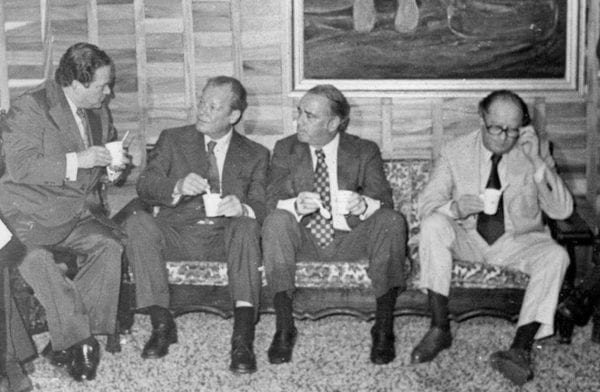Tag Germany
by guest contributor Steven McClellan The historian Fritz K. Ringer claimed that for one to see the potency of ideas from great thinkers and to properly situate their importance in their particular social and intellectual milieu, the historian had to… Continue Reading →
by guest contributor Jonathon Catlin Ten days after the fateful U.S. presidential election, several leading scholars of the Frankfurt School of critical theory gathered at Harvard University to reevaluate the legacy of the German-Jewish philosopher Theodor W. Adorno. The occasion—“Negative… Continue Reading →
by contributing editor Carolyn Taratko “Vegetarianism is not only a question of the stomach but also one of society.” This may sound familiar to readers, as articles such as “Eat less meat to avoid dangerous global warming, scientists say” grace… Continue Reading →
by John Raimo As often as historians and art historians talk past one another, they also come together before common problems, questions, and sources. Both groups recognize the sheer power of images. Such a moment has reappeared in intellectual history…. Continue Reading →
By guest contributor Paul Babinski In 1783 Karl Philipp Moritz went to Berlin’s Charité hospital looking for a human guinea pig. What we know of the deaf teenager he brought home, Karl Friedrich Mertens, comes from two accounts Moritz published… Continue Reading →




